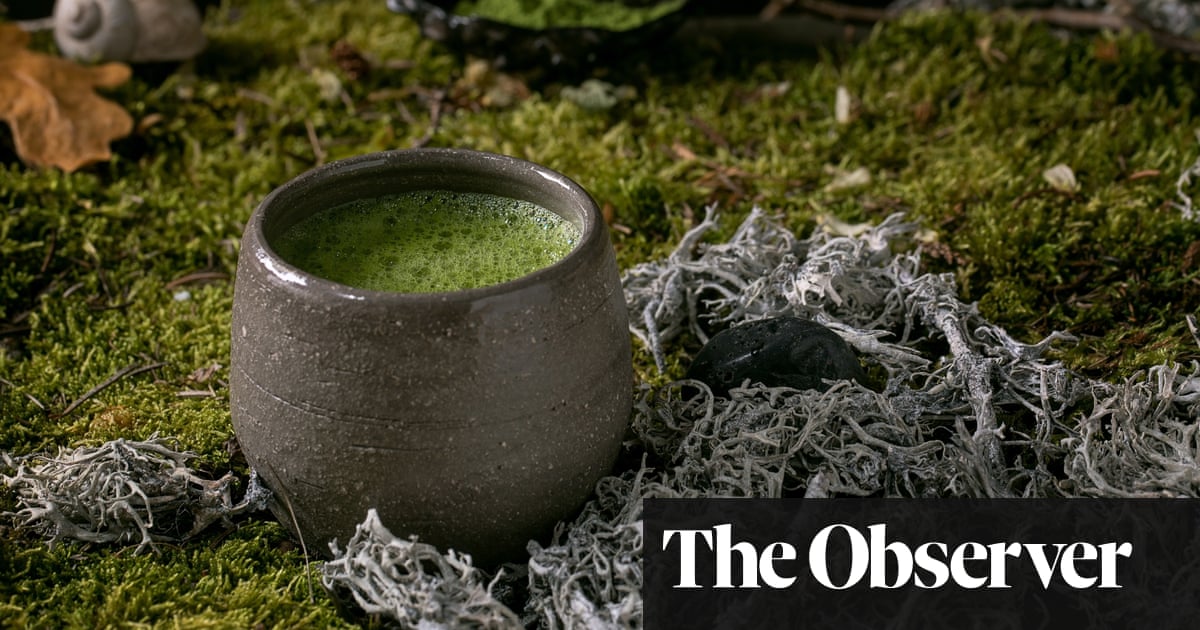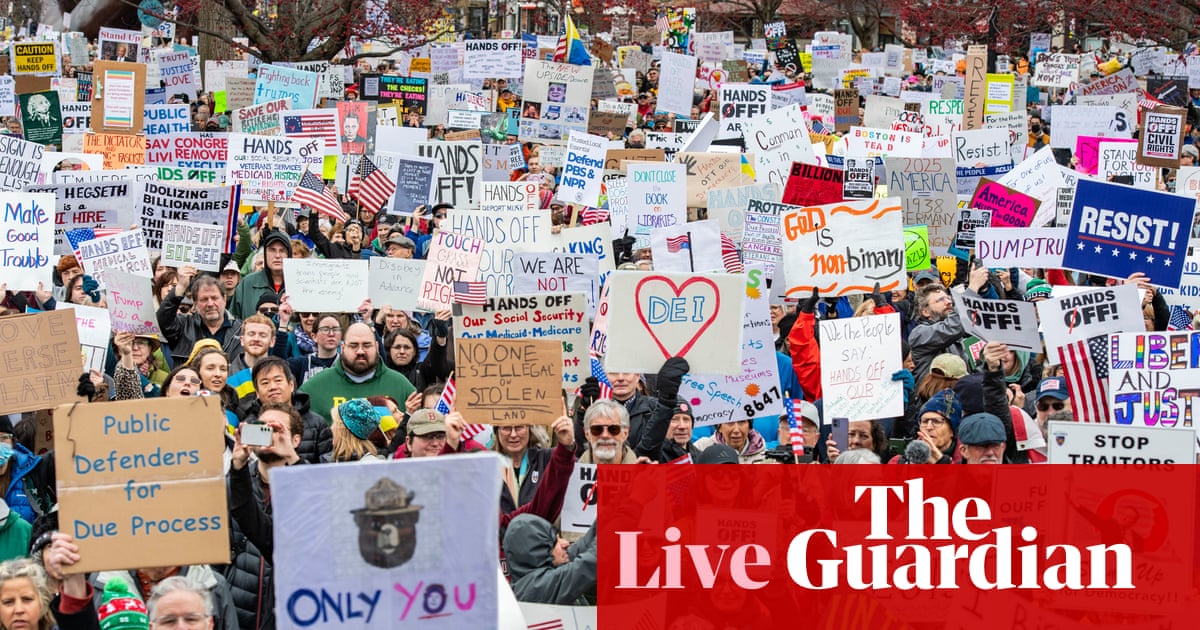UK’s response to 10% tariffs ‘will be guided by national interest’, says Downing Street
Downing Street said that UK prime minister Keir Starmer spoke to Australian prime minister Anthony Albanese and Italian premier Giorgia Meloni, and had “been clear the UK’s response will be guided by the national interest”.
Issuing a read-out of their separate conversations on Friday, No 10 said the leaders “all agreed that an all-out trade war would be extremely damaging”, reports the PA news agency.
A spokesperson said the PM “has been clear the UK’s response will be guided by the national interest” and officials will “calmly continue with our preparatory work, rather than rush to retaliate”.
The spokesperson added:
He discussed this approach with both leaders, acknowledging that while the global economic landscape has shifted this week, it has been clear for a long time that like-minded countries must maintain strong relationships and dialogue to ensure our mutual security and maintain economic stability.”
It is expected that Starmer will take further calls with counterparts over the weekend.
Ministers have so far avoided criticism of Donald Trump as they seek to secure a trade agreement with the US which they hope could secure some exemption from the tariffs.
However, the government has drawn up a list of products that could be hit in retaliation, and is consulting with businesses on how any countermeasures could impact them.
Rachel Reeves said on Friday that the government is “determined to get the best deal we can” with Washington.
The chancellor said:
Of course, we don’t want to see tariffs on UK exports, and we’re working hard as a government in discussion with our counterparts in the US to represent the British national interest and support British jobs and British industry.”
The Liberal Democrats have said that the government’s “attempts to appease the White House” are not working, and called on ministers to coordinate a response with allies.
Lib Dem leader Ed Davey said in a statement:
We need to end this trade war as quickly as possible, but the government’s attempts to appease the White House and its offers to cut taxes on US tech billionaires simply aren’t working.
Instead, the best way to end this crisis is to stand shoulder to shoulder with our European and Commonwealth friends. We must coordinate our response and strengthen our trading relations with our reliable allies. That’s how we can protect our economy from Trump’s bullying.”
Key events

Pippa Crerar
US president Donald Trump has long been an advocate of tariffs – once describing them as the most beautiful word in the dictionary – and his promise to impose them was a central plank of his presidential election campaign. In anticipation, Downing Street developed a defensive strategy that revolved around building a strong relationship with Trump’s White House – despite clear political differences – and launching talks to strike an economic deal that would secure tariff exemptions.
Trade talks between the UK and US began soon after Trump’s inauguration, before the prime minister visited Washington in February, with the goal of agreeing a relatively narrow deal focused on advanced technologies. Talks intensified before UK business secretary Jonathan Reynolds’ own visit to meet Howard Lutnick, the US commerce secretary, just over two weeks ago.
UK officials were assured by their US counterparts that they were in a strong position to negotiate a trade deal with Washington. “By then we knew what the faultlines were, and we were broadly there, so we just had some details to thrash out,” an official said.
The two key figures leading the negotiations are Reynolds and Varun Chandra, a corporate strategist turned senior No 10 aide known as the prime minister’s “business whisperer”. Officials have been impressed by how Chandra has navigated the US administration. “He just gets them, and they get him. The talks have been much more corporate in tone than trade negotiations usually are. That’s his world,” one said.
A senior trade department official, Kate Joseph, and Keir Starmer’s economic international affairs adviser, Michael Ellam, have been working behind the scenes at home to get the Whitehall machine ready. Multiple scenarios were drawn up depending on what tariff regime Trump imposed.
Netanyahu expected to talk tariffs with Trump in Washington on Monday, officials say
Israeli prime minister Benjamin Netanyahu is expected to visit the White House on Monday to discuss recently announced tariffs with US president Donald Trump, three Israeli officials said on Saturday, according to Reuters.
The impromptu visit was first reported by Axios, which said that if the visit takes place, the Israeli leader would be the first foreign leader to meet Trump in person to try to negotiate a deal to remove tariffs.
Netanyahu’s office has not confirmed the visit, that would probably also include discussions on Iran and Israel’s war against Hamas in Gaza.
The surprise invite by Trump came in a phone-call on Thursday with Netanyahu, who is on a visit to Hungary, when the Israeli leader raised the tariff issue, according to the Israeli officials who spoke on condition of anonymity to Reuters.
As part of a sweeping new tariff policy announced by Trump, unspecified Israeli goods exports to the US face a 17% tariff. The US is Israel’s closest ally and largest single trading partner.
An Israeli finance ministry official said on Thursday that Trump’s latest tariff announcement could impact Israel’s exports of machinery and medical equipment.
Israel had already moved to cancel its remaining tariffs on US imports on Tuesday. The two countries signed a free trade agreement 40 years ago and about 98% of goods from the US are now tax-free.

Pippa Crerar
When Jonathan Reynolds gathered with officials around the large television screen in his office to watch Donald Trump unleash his global trade war, he knew little more than anyone else about what was to come.
It was Wednesday night and the US president was about to upend a century of global trade with the imposition of sweeping taxes on US imports from around the world.
Moments before Trump sauntered on stage, Reynolds had been told to expect a universal baseline tariff of 10% – but he did not know whether anything else would be imposed on top. The expectation in government was that the UK would be hit with a 20% rate, which the Treasury watchdog had warned could wipe 1% off UK GDP.
As Trump brought out his sandwich board of global tariffs, Reynolds and his team shared the frustration of many viewers across the world – the board kept slipping behind the White House lectern and obscuring the all-important figures next to countries’ names.
It quickly became clear that the UK’s rate was 10%, lower than the 20% rate for the EU – but the same baseline as the US had imposed on countries including Brazil and Afghanistan. Within minutes, Downing Street described this as a “vindication” of Keir Starmer’s approach.
“When we heard it was a flat 10% there was some relief because it could have been so much worse,” one source said. “It also meant that they were true to their word about where we stood. That trust will be really important going forward.”
No 10 has been criticised for “sucking up” to Trump but getting little in return, but government sources argue that the tariff regime could have been substantially more damaging for the UK if they had not worked to develop good relations and put forward their own arguments.
They stress that the US was minded to include VAT – which has a standard rate of 20% and has been much maligned by Trump – in their calculations, but that Starmer made the case against this directly and publicly when he visited the White House in February. “We were able to talk them down,” a source said.
Tariffs are ‘completely illogical’ and will ‘damage the US itself’, says high commissioner for Canada in UK
Ralph Goodale, the high commissioner for Canada in the UK, told the BBC’s Radio 4 Today programme:
Our view is we have to stand firm. The action taken by the US government is completely illogical.
It will damage the United States itself. It will raise costs in the United States. It will eliminate jobs in the United States, it will reduce growth in the United States and we have to make it abundantly clear not just that that this is going to happen rhetorically, but the US has to feel the pain because ultimately it will be Americans who will persuade their government to stop this foolishness.”
He said Canadian prime minister Mark Carney’s firm stance was “strongly supported” by the Canadian population:
I have never seen Canadians more united and more determined around an issue before.
Mr Carney’s approach is very thoughtful, it’s very measured and it is one that enjoys huge support from the Canadian population. Canadians are standing together on this like I’ve never seen before.”
He added:
When we are attacked we fight back and we stand up for ourselves in the world and we build our own economy to ensure that we are more insulated from this kind of abuse in the future.”

Callum Jones
Donald Trump’s vast overhaul of US trade policy this week has called time on an era of globalisation, alarming people, governments and investors around the world. No one should have been surprised, the US president said.
The announcement of 10% to 50% tariffs on US trading partners tanked stock markets after Trump unveiled a “declaration of economic independence” so drastic it drew comparison with Britain’s exit from the European Union – Brexit.
But Trump, who won re-election promising that tariffs would make America great again, has advocated for the return of widespread tariffs with “great consistency” for decades. “I’ve been talking about it for 40 years,” he noted in the White House Rose Garden.
Many businesses, economists and politicians believe Trump’s trade plan is wrongheaded, flawed and risky. Some have even suggested it might have been written by ChatGPT. But he is unquestionably right when it comes to the number of decades he has argued for it.
“This is so unusual for Trump. He’s a conventional politician in one way: he doesn’t believe in much deeply,” Larry Sabato, director of the Center for Politics at the University of Virginia. Tariffs are different. “This one thing, he seems to deeply believe in.”
Nissan Motor is considering shifting some domestic production of US-bound vehicles to the US, the Nikkei reported on Saturday, as president Donald Trump ramps up trade tariffs on nations worldwide.
As early as this summer, Nissan plans to reduce production at its Fukuoka factory in western Japan and shift some manufacturing of its Rogue SUV to the US to mitigate the impact of Trump’s tariffs, the business newspaper said, without citing the source of its information.
The Japanese automaker’s Rogue SUV, a popular model in the US market, is now produced in Fukuoka and the US, the report said, according to Reuters.
On Thursday, Nissan said it would not take new orders from the US for two Mexican-built Infiniti SUVs after earlier Trump tariff announcements, marking, a drastic scale-back of its operations at a joint venture plant.
The automaker now plans to maintain two shifts of production of the Rogue at its Smyrna, Tennessee, plant after announcing in January it would end one of the two shifts this month.
Nissan sold about 920,000 vehicles in the US last year, of which about 16% were exported from Japan, the Nikkei said, adding the planned production shift could hit local suppliers’ businesses.
Italian economy minister Giancarlo Giorgetti warned on Saturday against the imposition of retaliatory tariffs on the United States in response to president Donald Trump’s announcement of sweeping tariffs on trade partners.
Speaking at a business forum near Milan, Giorgetti said Italy was aiming for a “de-escalation” with the US, reports Reuters.
“We should avoid launching a policy of counter-tariffs that could be damaging for everyone and especially for us,” Giorgetti said.
Under Trump’s plans Italy, which has a large trade surplus with the US, will be subject to a general tariff of 20% along with other European Union countries.
“This is the single biggest trade action of our lifetime,” said Kelly Ann Shaw, a trade lawyer at Hogan Lovells and former White House trade adviser during Donald Trump’s first term.
According to Reuters, Shaw told a Brookings Institution event on Thursday that she expected the tariffs to evolve over time as countries sought to negotiate lower rates. “But this is huge. This is a pretty seismic and significant shift in the way that we trade with every country on Earth.”
Trump’s Wednesday tariff announcement shook global stock markets to their core, wiping out $5tn in stock market value for S&P 500 companies by Friday’s close, a record two-day decline. Prices for oil and commodities plunged, while investors fled to the safety of government bonds.
Among the countries first hit with the 10% tariff are Australia, the UK, Colombia, Argentina, Egypt and Saudi Arabia. A US Customs and Border Protection bulletin to shippers indicates no grace period for cargoes on the water at midnight on Saturday.
But a bulletin from the agency did provide a 51-day grace period for cargoes loaded on to vessels or planes and in transit to the US before 12.01am ET Saturday. These cargoes need arrive to by 12.01am ET on 27 May to avoid the 10% duty.
Donald Trump announced sweeping tariffs on some of the US’s largest trading partners, upending decades of US trade policy and threatening to unleash a global trade war on what he has dubbed “liberation day”.
The president said he will impose a 10% universal tariff on all imported foreign goods in addition to “reciprocal tariffs” on a few dozen countries, charging additional duties onto countries that Trump claims have “cheated” the US.
You can listen to his comments in the below video:
UK’s response to 10% tariffs ‘will be guided by national interest’, says Downing Street
Downing Street said that UK prime minister Keir Starmer spoke to Australian prime minister Anthony Albanese and Italian premier Giorgia Meloni, and had “been clear the UK’s response will be guided by the national interest”.
Issuing a read-out of their separate conversations on Friday, No 10 said the leaders “all agreed that an all-out trade war would be extremely damaging”, reports the PA news agency.
A spokesperson said the PM “has been clear the UK’s response will be guided by the national interest” and officials will “calmly continue with our preparatory work, rather than rush to retaliate”.
The spokesperson added:
He discussed this approach with both leaders, acknowledging that while the global economic landscape has shifted this week, it has been clear for a long time that like-minded countries must maintain strong relationships and dialogue to ensure our mutual security and maintain economic stability.”
It is expected that Starmer will take further calls with counterparts over the weekend.
Ministers have so far avoided criticism of Donald Trump as they seek to secure a trade agreement with the US which they hope could secure some exemption from the tariffs.
However, the government has drawn up a list of products that could be hit in retaliation, and is consulting with businesses on how any countermeasures could impact them.
Rachel Reeves said on Friday that the government is “determined to get the best deal we can” with Washington.
The chancellor said:
Of course, we don’t want to see tariffs on UK exports, and we’re working hard as a government in discussion with our counterparts in the US to represent the British national interest and support British jobs and British industry.”
The Liberal Democrats have said that the government’s “attempts to appease the White House” are not working, and called on ministers to coordinate a response with allies.
Lib Dem leader Ed Davey said in a statement:
We need to end this trade war as quickly as possible, but the government’s attempts to appease the White House and its offers to cut taxes on US tech billionaires simply aren’t working.
Instead, the best way to end this crisis is to stand shoulder to shoulder with our European and Commonwealth friends. We must coordinate our response and strengthen our trading relations with our reliable allies. That’s how we can protect our economy from Trump’s bullying.”
Trump’s 10% tariff on UK products comes into force as stock markets plunge
Donald Trump’s 10% tariff on UK products came into force on Saturday, as global stock markets continued to fall in response to the imposition of import taxes.
The FTSE 100 plummeted on Friday in its worst day of trading since the start of the pandemic while markets on Wall Street also tumbled.
Keir Starmer is expected to spend the weekend speaking to foreign leaders about the tariffs, after calls with the prime ministers of Australia and Italy on Friday in which the leaders agreed that a trade war would be “extremely damaging”, reports the PA news agency.
The initial 10% “baseline” tariff took effect at US seaports, airports and customs warehouses at 12.01am ET (0401 GMT), ushering in Trump’s full rejection of the post-second world war system of mutually agreed tariff rates.
Many other countries will see their tariff rates increase above that next week – including the EU which will be hit with a 20% rate. A 25% tariff imposed on all foreign cars imported into the US came into effect on Thursday.
Trading across the world has been hammered in the aftermath of the US president’s announcement at the White House on Wednesday.
Accoding to the PA news agency, London’s top stock market index shed 419.75 points, or 4.95%, to close at 8,054.98 on Friday, the biggest single-day decline since March 2020 when the index lost more than 600 points in one day. The Dow Jones fell 5.5% on Friday as China matched Trump’s tariff rate.
Beijing said it would respond with its own 34% tariff on imports of all US products from 10 April.
All but one stock on the FTSE 100 fell on Friday, with Rolls-Royce, banks and miners among those to suffer the sharpest losses.










